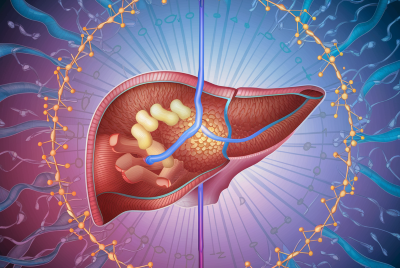Ketones Breath: A Sign of Your Body Burning Fat
Have you noticed a fruity or slightly metallic smell on your breath lately, especially if you’re following a low-carb diet? This could be a sign of ketones breath (AKA ketone breath), a common side effect of ketosis. But what exactly are ketones, and why do they cause this distinct odor? Let’s delve into the science behind ketones breath and explore its implications.
Understanding Ketosis: The Body’s Fat-Burning Mode
When carbohydrate intake is significantly restricted, the body enters a metabolic state called ketosis. In this state, the liver starts breaking down stored fat into molecules called ketones. These ketones then become the primary fuel source for many organs, including the brain, heart, and muscles, when glucose (sugar) from carbohydrates is limited.
There are two main types of ketosis:
- Nutritional Ketosis: This type is triggered by a low-carb diet. When carbohydrate intake is restricted, the body’s glucose stores become depleted, prompting the liver to switch to fat breakdown and ketone production for energy needs.
- Starvation Ketosis: This type occurs during prolonged periods without food intake. As the body’s glucose reserves are exhausted, it turns to fat breakdown and ketogenesis to maintain energy production.
The Cause of Ketone Breath: Acetone’s Exhalation
One of the main ketones produced during ketosis is acetone. Unlike other ketones, acetone is a volatile compound, meaning it readily evaporates at body temperature. During ketosis, a small portion of acetone is excreted through the lungs during exhalation. This excretion of acetone is what causes the characteristic fruity or metallic smell associated with ketone breath.
Why Doesn’t Everyone with Ketosis Experience Ketone Breath?
The intensity of ketone breath can vary from person to person. Here are some factors that might influence the odor:
- The Level of Ketosis: Generally, the deeper you are into ketosis, the higher the concentration of ketones in your blood and the stronger the potential for ketones breath. You can measure ketone levels using breathalyzer-like devices or urine test strips.
- Individual Variations: Some people naturally have a stronger sense of smell than others, making them more likely to notice ketones breath. Additionally, some individuals might metabolize ketones differently, leading to variations in the intensity of the odor.
- Hydration: Dehydration can worsen ketones breath. Staying well-hydrated can help dilute the concentration of acetone in your breath. Aim for eight glasses of water per day or more, depending on your activity level and climate.
Other Potential Contributors to Bad Breath During Ketosis:
While acetone is the primary culprit behind ketones breath while on a ketogenic diet regime, other factors can contribute to bad breath during a low-carb diet:
- Dietary Changes: Shifting to a low-carb diet might involve eliminating certain fruits and vegetables that contribute to freshness. Additionally, some high-protein foods, like cheese or certain meats, can break down into compounds that contribute to bad breath.
- Reduced Saliva Production: Carbohydrates stimulate saliva production, which helps wash away food particles and bacteria in the mouth. A low-carb diet might lead to slightly decreased saliva production, potentially contributing to bad breath.
Managing Ketones Breath: Tips and Considerations
While ketones breath is a harmless side effect, it can be unpleasant for you and those around you. Here are some tips to manage it:
- Increase Water Intake: Drinking plenty of water helps flush out ketones from your body and can dilute the concentration of acetone in your breath. Aim for eight glasses of water per day or more, depending on your activity level and climate.
- Practice Good Oral Hygiene: Brushing your teeth twice daily and flossing regularly removes food particles and bacteria that can contribute to bad breath, including any lingering ketone odor. Consider using a tongue scraper to remove bacteria from the tongue’s surface, which can trap odor-causing particles.
- Consider Sugar-Free Mints or Gum: Chewing sugar-free mints or gum can temporarily mask ketone breath and freshen your breath. Choose sugar-free options to avoid interrupting ketosis.
- Monitor Your Carbohydrate Intake: While remaining in ketosis, a slight increase in your daily carb intake might help reduce ketone production and potentially lessen ketone breath. However, it’s important to consult a healthcare professional or registered dietitian before making significant changes to your diet.
- Low-Carb Diet and Oral Health: While uncommon, some studies suggest a potential link between low-carb diets and increased risk of cavities. Maintaining good oral hygiene and scheduling regular dental checkups is crucial during a low-carb diet.
Is Ketone Breath a Cause for Concern?
In most cases, ketone breath is a harmless side effect of ketosis and doesn’t require medical attention. However, if you experience the following alongside ketone breath, it’s crucial to consult your doctor immediately:
- Excessive thirst or urination: These symptoms can indicate dehydration or uncontrolled blood sugar levels, which could be a sign of diabetic ketoacidosis (DKA).
- Fatigue or lethargy: Feeling unusually tired or lacking energy can be a symptom of various conditions, including DKA or electrolyte imbalances.
- Nausea or vomiting: These symptoms can be caused by various factors, but in combination with ketone breath, they could indicate a more serious underlying issue.
- Confusion or difficulty concentrating: Mental fog, confusion, or difficulty concentrating can be signs of DKA or electrolyte imbalances.
Diabetic Ketoacidosis (DKA) and Ketone Breath:
It’s important to distinguish between ketone breath caused by ketosis and DKA. DKA is a serious complication of type 1 diabetes that can be life-threatening if left untreated. While ketone breath can occur in both ketosis and DKA, DKA typically presents with much higher levels of ketones in the blood and additional concerning symptoms.
Consulting a Healthcare Professional:
If you’re unsure about the cause of your ketone breath or experience any of the concerning symptoms mentioned above, consult your doctor. They can assess your situation, measure your ketone levels, and determine if your symptoms are related to ketosis or indicate a more serious underlying condition.
Conclusion: Knowledge is Power
Ketone breath is a unique sign that your body is burning fat for fuel. While it can be a noticeable side effect of going into ketogenic diet, understanding the cause and implementing simple strategies can help manage it. Remember, consulting a healthcare professional before starting a low-carb diet or experiencing concerning symptoms is essential for ensuring your well-being.
Here are some additional points to consider:
- Individual Needs: A low-carb diet and ketosis may not be suitable for everyone. Consulting a healthcare professional can help you determine if it’s a safe and appropriate approach for you.
- Gradual Transition: If you decide to pursue a low-carb diet, transitioning gradually can help minimize the risk of side effects, including ketone breath.
- Balanced Diet: Even if you’re considering ketosis, focus on a balanced diet that incorporates a variety of nutrient-rich, low-carb options like vegetables, nuts, seeds, and healthy fats.
By understanding ketone breath and prioritizing a healthy lifestyle, you can navigate a low-carb diet with more confidence and keep your breath fresh while supporting your body’s unique metabolic needs.
| Final advice: Ideally, Keto should not be a one-size-fits-all diet plan. The ideal is to have a personalized keto diet plan where your personal circumstances, needs and goals are taken into consideration in the plan. It must include an assessment of your body condition, daily physical activity level (couch potato, somewhat active, very active, etc.), gender, age, height, weight, dietary preferences (preferred types of meats, veggies, eggs, nuts, cheese, butter, etc.). Get your custom keto diet plan NOW. |
References:
- National Institute of Diabetes and Digestive and Kidney Diseases. (2020).Ketosis
- Healthline. (2022). What is ketosis?
- Koeslag JH, Noakes TD, Sloan AW. Post-exercise ketosis.
Owen OE, Morgan AP, Kemp HG, Sullivan JM, Herrera MG, Cahill GF Jr. Brain metabolism during fasting - Dostal, Z., & Bruthans, J. (1971). Ketoacidosis, an important symptom of metabolic acidosis
- Veech RL. The therapeutic implications of ketone bodies: the effects of ketone bodies in pathological conditions: ketosis, ketogenic diet, redox states, insulin resistance, and mitochondrial metabolism
Transparency Disclosure: This article was written with AI assistance in the research and outlining but with comprehensive editing, refining and fact-checking by the author to ensure accuracy and high-quality content.





